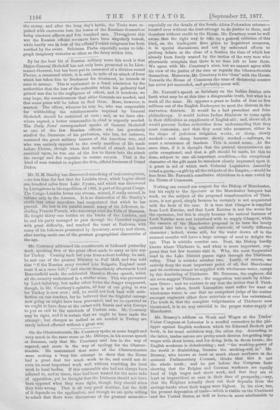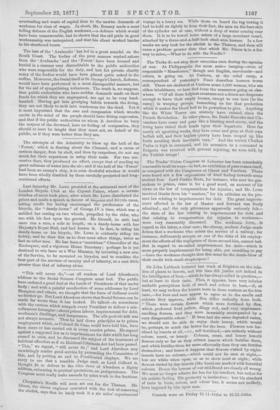Mr. 13rassey's address on Work and Wages at the Trades'
Union Congress at Leicester is a needful corrective to the phi- lippic against English workmen which Sir Edmund Beckett put forth, in his usual acidulous way, the other day. According to the latter, trades unions are pretty much devices for getting large wages with short hours, and for doing little in those hours , the English workman is deteriorating ; and "the working-power of the world is diminishing, because the working-will is." Mr. Brassey, who knows at least as much about workmen as the eminent Parliamentary Counsel, thinks that this is not the whole truth ; and he put before the Congress facts showing that the Belgian and German workmen are equally fond of high wages and short work, and that they are at least as improvident as ours in their time of prosperity,—nay, that the Belgians actually drew out their deposits from the savings-banks when their wages were highest. In his view, too, the present depression of trade—which is visible on the Continent and the United States, as well as here—is more attributable to
overtrading and waste of capital than to the unwise demands of workmen for rises of wages. In short, Mr. Brassey made a most telling defence of the English workman,—a defence which would fifty° been unanswerable, had he shown that the old pride in good workmanship was unimpaired, and that his client worked harder in his shortened hours.































 Previous page
Previous page